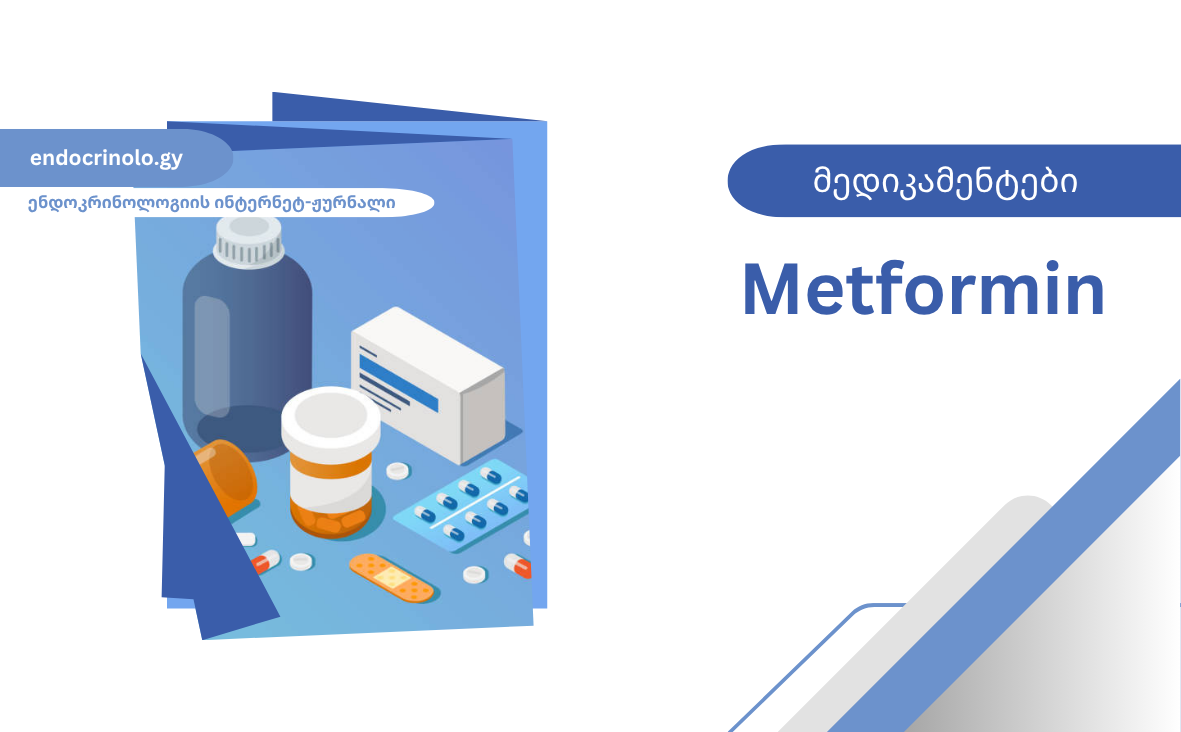Metformin is a medication that affects glucose metabolism and is widely used in the management of type 2 diabetes.
It can also be prescribed for insulin resistance syndrome, polycystic ovary syndrome, prediabetes, gestational diabetes, and sometimes even for weight loss management.
Unlike many other modern medications, metformin is not a specifically designed compound to fit specific molecular mechanisms and target a specific disease.
In contrast, the drug is derived from natural resources. Specifically, from a plant called Galega officinalis. The blood sugar-lowering effects of this plant were first observed in 1918.
How does metformin work?
Due to the natural origin of metformin, despite its 60-year history of clinical use, its mechanism of action has not yet been fully elucidated.
What we do know for sure is that the drug reduces the production of glucose by the liver, and thus, less sugar enters the blood in this way.
Metformin also improves the sensitivity of cells to insulin, as a result of which the hormone's action becomes more effective and cells better absorb glucose from the blood, which in itself helps to reduce its concentration in the blood.
In recent years, the effect of metformin on the intestinal microflora has been under active observation, as the processes occurring here are also considered to be one of the mechanisms that lower blood glucose.
What are the trade names of metformin?
The drug is available in Georgia under various trade names, such as: Asformin, Glycophren, Glyphor, Glucostop, Glucophage, Insufor, Matofin, Metfogamma, Metforix, Metformin Denk, Siofor.
Metformin is also included in combination drugs with other groups of medications intended for glycemic management.
These include, for example: Amaryl M, Galvusmet, Gliklamet, Glomermet, Glucovance, Wilmetfor, Wiltamet, Janumet, Normoglip M, Symvia, Synovimet, Citadiab Met, Citanor Met.
What are the common side effects of taking metformin?
Gastrointestinal symptoms may include: stomach pain, nausea, vomiting, diarrhea, and loss of appetite.
These events are more likely to occur in the first few days of starting the medication or in the event of a sharp increase in dosage.
Strategies to reduce the risks of these side effects include:
- Start taking the drug with small doses and gradually increase the dose;
- Use of the extended-release (XR) form of the drug;
- Take during or immediately after meals.
Other possible side effects are:
Metallic taste in the mouth.
Vitamin B12 deficiency – which occurs with long-term use of metformin, especially in high doses.
How long does it take for metformin to show its effects?
No significant changes in self-perception are expected after starting metformin, especially if the disorders are not accompanied by symptomatic manifestations and are only reflected in laboratory tests.
However, despite this, the positive effects of the drug on the body begin immediately after taking the first dose.
Is it possible to drink alcohol with metformin?
The combination of alcohol and metformin increases the risk of blood sugar dropping too low – Risks of hypoglycemia.
It is best to clarify this issue with your doctor whether it is permissible to consume alcohol and in what quantity.
What should you do if you miss a dose of metformin?
Take the missed dose as soon as you remember, unless it is almost time for your next dose.
Do not take a double dose of metformin to make up for a missed pill.
How long can metformin be taken?
If the drug is prescribed to manage type 2 diabetes, it may be continued indefinitely as long as it is effective.
If metformin is prescribed for another reason (gestational diabetes, insulin resistance syndrome, prediabetes), the duration of treatment is determined by the doctor individually and this period can last from 3 to 10 months.
Does metformin cause weight gain?
Metformin does not cause weight gain. In some cases, it may even promote weight loss, although this effect is not equally evident in everyone.
Can metformin be taken during pregnancy and lactation?
Metformin is allowed during pregnancy and lactation. The decision to use the drug should be made by a specialist doctor.
When might emergency medical response be necessary?
Seek emergency medical attention if you experience any of the following symptoms while taking metformin: severe abdominal pain, difficulty breathing, severe weakness, or drowsiness.
Is it permissible to take metformin before surgery?
If you are planning to have surgery, your doctor will recommend that you stop taking the drug a few days before the procedure so that its effects do not contribute to complications.
You may need to temporarily stop taking metformin before a CT scan, angiogram, or radiological examination that requires the use of a contrast agent.Specific recommendations on this issue depend on the functional state of the kidneys, the amount of contrast to be used, and the patient's age.

Are there any dietary restrictions when taking metformin?
Excessive alcohol consumption should be limited.
There are no specific food restrictions related to metformin. A balanced, healthy diet and physical activity are required to maximize the effectiveness of the drug, and nutrition appropriate to the disease it is prescribed to manage.
Does metformin damage the kidneys and other organs?
This is one of the most famous myths about metformin, and it is not true.
Diabetes is a progressive disease, and when hyperglycemia is not managed properly, the risk of one of its long-term complications – kidney damage – increases.Its appearance, of course, is not an effect of metformin, but a result of incompletely controlled high blood sugar levels.
Metformin, like many other drugs, is excreted by the kidneys, and when the kidneys are not functioning properly, this may be a contraindication to the prescription of this drug.
Metformin itself does not cause kidney damage, but on the contrary, many studies confirm that the use of metformin in diabetes mellitus protects the organ andIf diabetic nephropathy develops, it can lead to the development of end-stage renal failure.
Metformin also has a positive effect on the liver, especially when diagnosed with fatty liver disease, which often accompanies type 2 diabetes.
The drug has a protective effect on the heart.
Metformin may also have a protective effect against tumors. Studies are ongoing to obtain more data in this direction.
What does extended-release (XR) metformin mean and what makes it different from standard metformin?
The extended-release XR form of metformin is absorbed into the bloodstream more slowly and circulates longer than the standard metformin tablet.Its action is also long-lasting, and these properties allow the daily dose to be administered in most cases in a single dose, usually after dinner.
Standard metformin is rapidly absorbed into the bloodstream, its action is relatively short-lived, and high doses are divided into 2-3 doses throughout the day.
Examples of trade names include: Glucophage XR, Siofor XR, etc.
What is the maximum daily dose of metformin?
The maximum daily dose of standard metformin is 3000 mg. The maximum for its extended-release form – XR – is 2000 mg/day.
The dosage range depends on the functional state of the kidneys, the age of the patient, and other factors.
Author: Elga Giorgadze (MD of Endocrinology)






